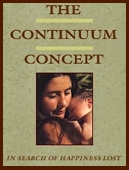I have started reading the above mentioned book. And from the foreword by Michel Odent I already see how all the interventions in hospitals and possibly also at home will give women and their babies a really bad birth and and bad start in life.
Oxytocine the love hormone hardly gets a chance in medicalized births, as often the process gets the label of "failure to progress" (can we please rephrase that into "failure to be patient"?). With the label FTP a women gets an IV with artificial oxytocine which is not the same and will not go to the brain. This will have an impact. I can think of various things, depression, having trouble bonding with the baby etc. Just let yr brain do the math.
Furthermore a woman who is not feeling safe will have a problem to progress anyway. It is clear from mammals that they do not give birth in a dangerous situation, they wait, and then when things are safe the young animal can be born. But only when the mother animal is safe.
Humans aren't any different. And from the stories that I have heard from mothers who had their babies in the hospital, most didn't feel calm, relaxed and safe, the crucial needs to be able to give birth. I can only guess how often that leads to interventions, based on the FTP, which will in its turn, when the progress still doesn't happen lead to a cesarean section.
I think its high time we start looking at the normal process of labour and birth and not standardize it anymore, as this is totally impossible with the amount of differences there are in humans. Some women give birth to their baby within 1 hour, others need 48 hours. Then there are women who deliver a full-term baby at 37 weeks, others need 44 for that.
With the knowledge I have about this I can do the simple math and know that the present practises surrounding childbirth are not in the best interest of mother and baby.
The mother needs to have the love hormone in her body and brain when the baby is born. When it is inhibited by a synthetic oxytocine right after birth to speed the placenta out, what will that do to the bonding process?
I have actually, in all the reading that I have done not found a reason to speed out the placenta just like that. When a woman is not bleeding, there is no reason to do that. Then nature can take its course and the mother can bond with her baby and nurse it.
Some women take longer getting the placenta out then others, so what, when mother feels well, why interfere? Maybe because dinner is served in 1 hour, or there is something on tv soon? Or shift ends? None of those are good reasons, and I know I am being a tad bit sarcastic here, but I have met too many women who felt that way. I have actually heard many stories from women who had comments from their docs that they would do an episiotomy coz shift was ending or that doc was going on holiday, or even things like that this would then maybe be the first baby of the new year, this makes me very sad.
The majority of women are very well able to give birth without any interventions and mother and baby will have a good bonding as well.
Bonding is crucial to build up a good relationship and nursing relationship with the baby, nothing should be allowed to interfere with that, unless health / lives are at stake.
In TCC parenting bonding after birth is very important. Therefore I consider this topic fitting with TCC parenting.
Thursday, 10 January 2008
Subscribe to:
Post Comments (Atom)


No comments:
Post a Comment